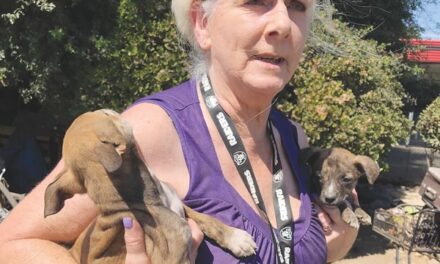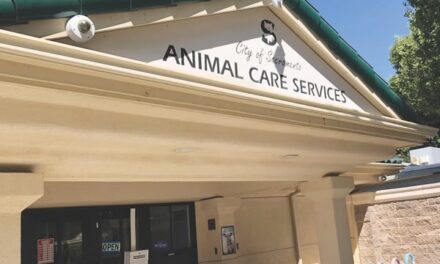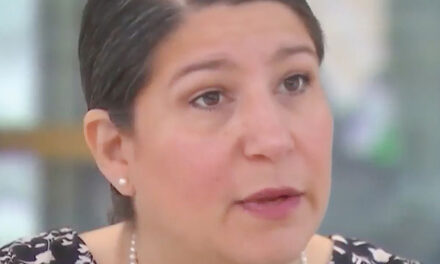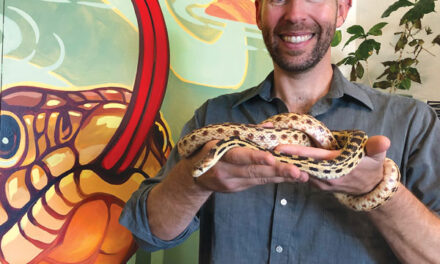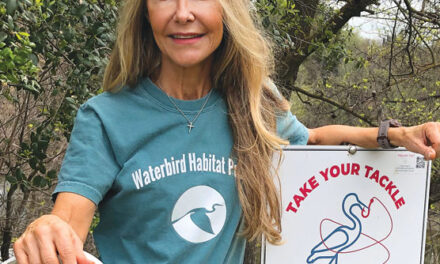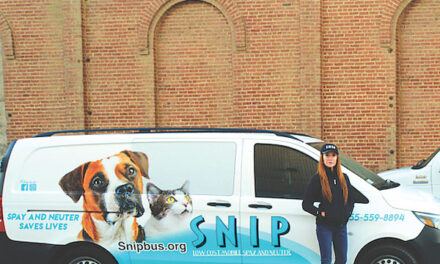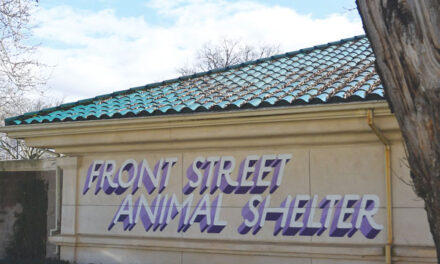The twilight sky is amber with hints of rust from the late summer sun. Towering 300-year-old oak trees canopy the expansive lawn. We gather at the edge of a grass knoll overlooking acres of lush grape vines laden with fruit almost ripe for fall harvest. Everyone is still.
Debby Duvall, a volunteer with the Wildlife Care Association, stands before us with two plastic pet carriers, each holding an orphaned barn owl. A young guest is her assistant for the evening. They both don heavy leather falconry gloves. Unlatching the first carrier’s metal door, Duvall gently pulls out the imprisoned bird, and instructs her guest assistant to grip the owl’s legs while she holds the bird in position for release, the owl’s fierce talons gripping the sturdy gloves for balance.
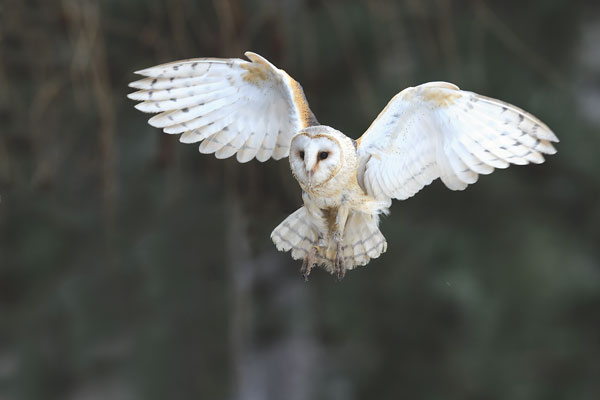
Raising their arms in unison toward the sprawling vineyard, the sun casting a glow across the landscape, the duo release their grip on the regal creature. The crowd watches trance-like as the majestic bird of prey recaptures his freedom.
A low murmur of awe and relief weaves through the crowd as we suppress our applause until the second captive barn owl is set free and disappears into the night sky.
The orphaned owlets were brought to WCA in 2019. Volunteers hand-fed the pair until they were old enough to eat on their own. The next stop was an outdoor flight cage with a nesting box where the young birds stayed until they could fly and were old enough—4 to 6 months—to be released.
WCA, a nonprofit organization dedicated to the rescue, rehabilitation and release of local wildlife, holds these fundraising owl-release events in July and August each year at Heringer Estates Family Vineyards in Clarksburg. Heringer practices sustainable and pesticide-free farming, which makes the winery the ideal location to give fauna a second chance at a wild existence.
In addition to the owl release, WCA volunteers educate the crowd regarding native wildlife with “ambassador” animals. Guests bring picnics, taste wine, participate in a drawing and bid in a silent auction where two winners will assist with the owl release.
“The silent auction winner gets to release an owl under my supervision,” says Duvall, who has been volunteering for WCA for 29 years. “I can’t explain the joy it gives me to give someone such an experience of a lifetime. Rehabbers get used to doing it all the time … we forget how exciting it is for the average person to be so close to a wild animal, let alone touch it and help to release it.”
Despite their dedication to the owls and all wildlife, the volunteers never give names to animals that are being rehabbed for release. “It implies they are pets when members of the public hear you calling them by a name,” Duvall says. “It is very important to not treat or portray wildlife like pets or domestic animals.”
WCA was established in 1975, getting its start with prominent naturalists M.B. Goodier, Effie Yeaw and William B. Pond. More than 6,000 sick, orphaned and injured animals—from squirrels, raccoons and opossums to songbirds, raptors and crows—find medical care each year by WCA volunteers, staff and local veterinarians. Once the animals have recovered from injury or illness, or have matured and learned to hunt and fend for themselves, they are released into the wild.
WCA is located at 5211 Patrol Road in McClellan. If you find a sick, orphaned or injured wild animal, leave a message on the wildlife care hotline at (916) 965-9453 and a volunteer will call you back as soon as possible (see sidebar).
For information on WCA, including how to donate or volunteer, visit wildlifecareassociation.com.
Cathryn Rakich can be reached at crakich@surewest.net. Follow us on Facebook, Twitter and Instagram: @insidesacramento.




